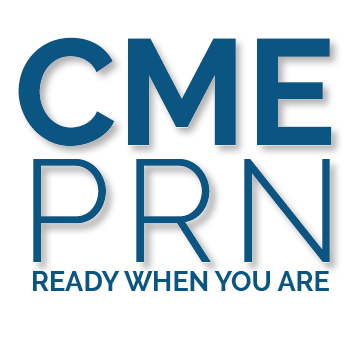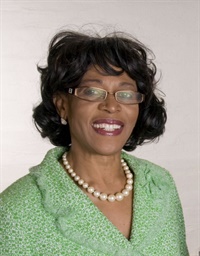
Total Credits: 1 including 1 AMA PRA Category 1 Credit(s)™, 1 AOA Category 1-A Credit(s), 1 AOBPM Specialty Credit(s)
This program will expire and must be completed by 01/05/27.
*** Please note this program was part of the KCU Homecoming 2023. If you participated in the live event, you would not want to choose this program. ***
In this presentation, the presenter will discuss the need for cultural competency in health care to deliver effective, quality care to patients with diverse beliefs, values, behaviors, and disabilities. This will include reviewing social determinants of health and how providers can help reduce national healthcare disparities. In addition, there will be a discussion on the importance of recruiting and retaining underrepresented minorities in healthcare.
Learning Objectives:
· Articulate that cultural competency is a necessary tool in taking care of diverse patients in today’s healthcare setting.
· Recognize that gaining greater insights into cultural barriers and differences can enhance patients’ trust and compliance, thus improving provider/patient relationships.
· Demonstrate that a culturally competent healthcare system can help improve health outcomes and quality of care and consequently contribute to eliminating health disparities plaguing some communities and diverse racial groups.
· Explain that a qualified, talented, competent, and diverse healthcare workforce is now imperative in the aftermath of COVID-19, which devastated many segments of poor communities with workforce shortages.
· Specify that fostering the recruitment, retention, and graduation of capable individuals from underrepresented backgrounds in medicine and other health professions is important in improving overall national healthcare issues and health outcomes.
Accreditation Statement:
The event has been planned and implemented in accordance with the accreditation requirements and policies of the Accreditation Council for Continuing Medical Education (ACCME) and the American Osteopathic Association (AOA) through the joint providership of the Missouri Association of Osteopathic Physicians and Surgeons (MAOPS) and Kansas City University (KCU) College of Osteopathic Medicine. MAOPS is accredited by the ACCME to provide continuing medical education for physicians.
AMA (Allopathic) Credit Designation:
MAOPS is accredited by the ACCME to provide continuing medical education for physicians. MAOPS designates this activity for a maximum of 1 AMA PRA Category 1 Credit(s)ä. Physicians should claim only the credit commensurate with the extent of their participation in the activity.
AOA (Osteopathic) Credit Designation:
MAOPS is accredited by the AOA to provide osteopathic continuing medical education for physicians. MAOPS designates this program for a maximum of 1 AOA Category 1-A CME Credit(s) and will report CME and specialty credits commensurate with the extent of the physician’s participation in this activity.
Planning Committee Disclosure:
Each of the members of the KCU CME Planning Committee discloses that he/she has no actual or potential conflict of interest in relation to this presentation, including no relevant financial relationships with any commercial interests relative to the content of this program.
Grievance Policy for AOA Credit:
All grievances should be in writing and should specify the nature of the grievance. Initially, all grievances should be directed to MAOPS Executive Director, who will then forward said grievance to the Education & Convention Committee. All grievances will receive an initial written response within 30 days of receipt. If the participant does not receive a satisfactory response, they can submit a complaint in writing to the Council on Continuing Medical Education of the AOA at 142 East Ontario Street, Chicago, IL 60611.
| PowerPoint Slides (4.49 MB) | 69 Pages | Available after Purchase |

Dr. Margaret Aguwa completed her medical degree at Kansas City University College of Osteopathic Medicine in 1973. After her internship at Tri-County Hospital in Philadelphia, she did a year of surgical residency in New York before joining a Family Practice group in Queens, NY. In1976, she accepted a faculty position at Michigan State University in the Department of Family and Community Medicine at the College of Osteopathic Medicine. She attained full Professorship in 1991 and eventually became Chairperson of the Dept. in 2000. She was named Associate Dean for Community Outreach and Clinical Research in 2005. Over the years of her service at MSU, she held various positions including: Chairperson, University Medical Credentials and Privileges Committee; Director, Medical Internship Training; Faculty Excellence Advocate, representing the College of Osteopathic Medicine; Director, Departmental Clinical Enterprise; Deputy Medical Examiner, Ingham County Health Department; and also served as a US Civil Surgeon.
In 1992, Dr. Aguwa produced an instructional video-tape on Breast Self-examination. The video-tape titled “Breast Self-examination: A Touch of life” received a Merit Award from the American Cancer Society.
In 2000, Dr. Aguwa founded the OsteoCHAMPS program as a health career pipeline for high school students from communities of need in Michigan. Dr. Aguwa was honored by the Detroit News Board of Directors as a Michiganian of the Year 2007.
Dr. Aguwa is board certified in: Family Medicine; Public Health and Preventive Medicine, and has diplomate certificates in Health Policy (AOA) and Academic Medicine Leadership (Costin Institute). She is a Fellow of the American College of Osteopathic Family Physicians.
Retired from MSU in 2014 after 37 years of service, Dr. Aguwa authored numerous articles and book chapters; served on the editorial boards of the British Medical Journal-USA and The Johns Hopkins University Journal for Advances in Medicine. She was a member of the Advisory Committee to the Secretary of the US Department of Health and Human Services and helped to write the seminal principles on the training of primary care physicians and dentists throughout the United States. The “Dr. Margaret Aguwa Endowed Scholarship” at MSU helps support deserving MSUCOM students in financial need.
From 2014 till 2017, she served as the Medical Director for the Senior Community Care of Michigan, a PACE program in the Lansing community.
Married to Okechukwu Aguwa, PhD, Dr. Aguwa is a proud mother of two surviving sons and is Gigi to her 5 year old grandson, Dominick.
Margaret I. Aguwa, BA, DO, MPH, FACOFP, has no relevant financial relationships with any organization producing, marketing, reselling, or distributing health care goods or services consumed by, or used on, patients relative to the content of this presentation.
Dr. Aguwa can be reached at maguwa44@gmail.com or 517-881-7212.
| 5 |
|
| 4 |
|
| 3 |
|
| 2 |
|
| 1 |
|